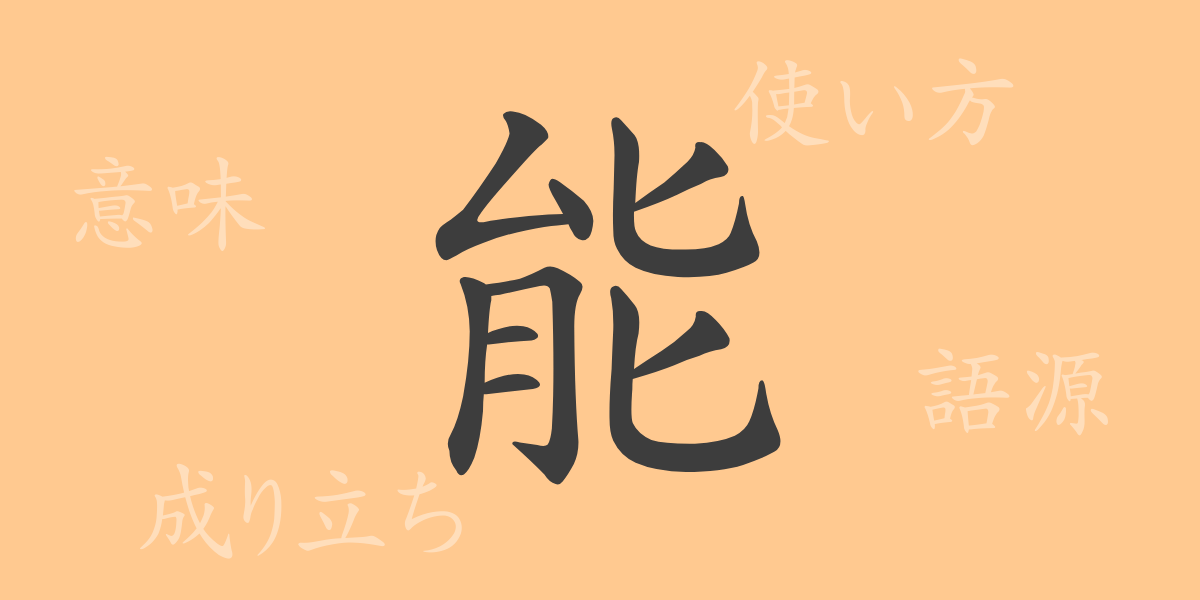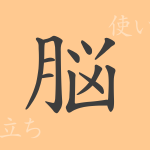Japanese culture and language are imbued with deep history and meaning, with each Kanji character holding its unique story and utility. One such Kanji, ‘能 (ノウ)’, plays a crucial role in the Japanese lexicon. This article delves into the etymology of ‘能’, its contemporary usage, and expressions derived from this character, exploring its significance.
Origins of ‘能 (ノウ)’
The Kanji ‘能’ originated in ancient China, initially depicting a bear and symbolizing strength and capability. The use of Kanji in Japan began around the 5th century, and since then, ‘能’ has integrated into unique aspects of Japanese culture and language.
Meaning and Usage of ‘能 (ノウ)’
‘能’ generally means ‘to be capable’ or ‘able.’ It also refers to talent or skill in specific arts or techniques. It is used as a noun to describe ability and combined with other characters to form compound words.
Readings, Stroke Count, and Radical of ‘能 (ノウ)’
The readings and structure of ‘能’ reflect its historical development.
- Readings: On’yomi ‘ノウ’, Kun’yomi ‘よく’
- Stroke Count: 10 strokes
- Radical: 肉 (にくづき)
Phrases, Idioms, and Proverbs Involving ‘能 (ノウ)’
There are numerous idioms and proverbs that include ‘能’. For instance, ‘能ある鷹は爪を隠す’ translates to ‘a capable hawk hides its talons,’ meaning that truly skilled individuals do not show off their talents. The compound ‘能力’ refers to a person’s skills or talents and is frequently used in business contexts.
Conclusion on ‘能 (ノウ)’
From its origins to the present, the Kanji ‘能’ has been used in a variety of meanings and contexts. Its application in Japanese is not just linguistic but deeply cultural, and its importance is likely to remain unchanged. Through this article, we have gained a deeper understanding of the rich history of ‘能’ and how it is used.

























